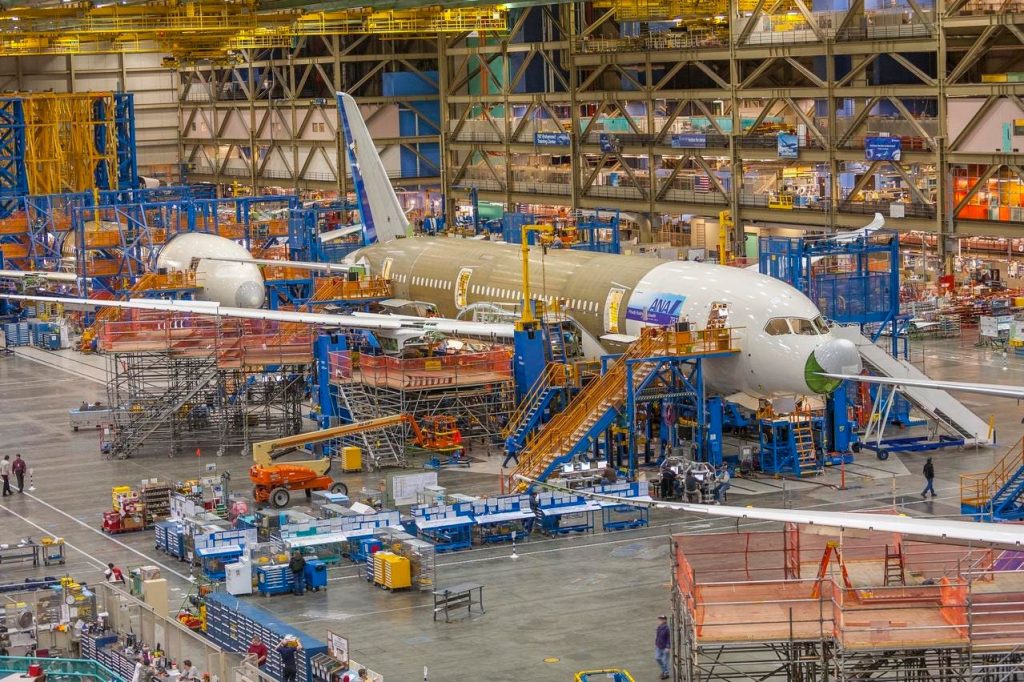Boeing, once a titan of American aerospace, is grappling with a confluence of challenges that threaten its long-term viability and have triggered a dramatic stock decline. Manufacturing delays, quality control issues, and the fallout from the 737 MAX tragedies have eroded investor confidence and tarnished the company’s reputation. This decline isn’t merely a reflection of external market forces; it signifies a deeper structural issue within the organization itself. Remarkably, the call for radical change is now echoing from within Boeing’s ranks, as employees advocate for a full corporate breakup. This internal pressure, coupled with external analysis, underscores the urgency of the situation and suggests that a breakup may be the strategic imperative needed to unlock Boeing’s true potential and regain its former glory.
The internal push for a breakup is not simply a symptom of employee discontent; it represents a profound understanding of the operational inefficiencies that plague the company. Boeing employees, intimately familiar with the day-to-day realities of the business, recognize that the current monolithic structure hinders agility, innovation, and responsiveness to market demands. They witness firsthand the bureaucratic bottlenecks, quality control lapses, and production delays that stem from a complex and unwieldy organizational structure. This ground-up perspective offers valuable insight, revealing the cracks in the foundation that external observers may overlook. This internal consensus adds significant weight to the argument for restructuring, transforming the discussion from a strategic option to a necessary step for survival.
The current structure, once a source of strength, has become a liability. It inhibits the individual business units from focusing on their core competencies and responding effectively to the specific demands of their respective markets. A breakup, proponents argue, would streamline operations, improve accountability, and allow each division – commercial airplanes, defense, space and security, and global services – to operate with greater autonomy and efficiency. This separation would mirror the recent strategic restructuring undertaken by General Electric, which similarly sought to simplify its operations and unlock shareholder value. The proposed restructuring is not about dismantling a legacy; it’s about creating a more focused and agile organization capable of competing in a rapidly evolving aerospace landscape.
The potential financial benefits of a breakup are substantial. Analysts project a potential doubling of Boeing’s stock value, a 100% upside based on the anticipated performance of the individual, more focused business units. This projection reflects the belief that each independent entity would be better positioned to attract investment, optimize its operations, and achieve greater profitability. The current market valuation, depressed by the company’s ongoing struggles, arguably does not reflect the intrinsic value of its constituent parts. A breakup, therefore, represents an opportunity to unlock this trapped value and restore investor confidence. This revitalization would not only benefit shareholders but also contribute to the long-term stability and growth of the company.
The groundswell of support for a breakup among Boeing’s employees is a significant development. These individuals, ranging from senior managers to ground crew, possess an intimate understanding of the company’s operational challenges. Their call for change is not merely a complaint; it’s a strategic assessment of the company’s future prospects. They recognize that a streamlined, more focused structure is essential for Boeing to regain its competitive edge and reclaim its position as a leader in the aerospace industry. This internal advocacy underscores the urgency of the situation and highlights the potential for a breakup to revitalize not only the company’s financial performance but also its internal culture and morale.
Ignoring this internal call for change carries significant risks. Alienating the workforce, the very foundation of Boeing’s operations, could further exacerbate the company’s challenges. Moreover, failing to adapt to the evolving market landscape could lead to further decline, potentially mirroring the struggles of companies like Intel, which have faced criticism for clinging to outdated structures. Boeing stands at a crossroads. It can choose to embrace change, unlock its potential, and revitalize its legacy, or it can risk continued decline and the erosion of its once-dominant position in the aerospace industry. The decision to pursue a breakup is not simply a financial calculation; it is a crucial step towards securing Boeing’s future and reaffirming its commitment to innovation, quality, and its dedicated workforce. The time for decisive action is now.










